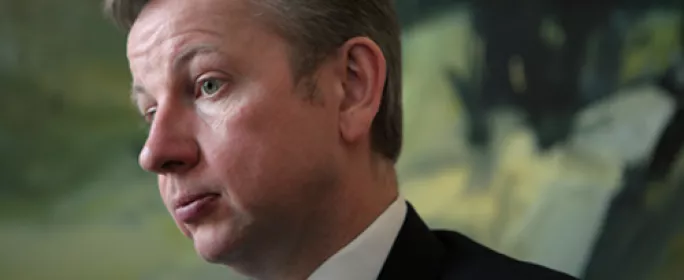Michael Gove’s bid to cut school holidays suffer a ‘huge blow’
Michael Gove’s plans to radically overhaul teachers’ working conditions and cut school holidays have suffered a “huge blow” from the latest report from the School Teachers’ Review Body (STRB), unions have claimed.
The STRB, which advises the government on pay and conditions, has rejected calls from Mr Gove to remove key regulations that restrict teachers’ working hours and how they spend their time.
Their report agreed to retain the limit to teachers’ working hours of 1,265 hours and 195 days, as well as current regulations which give teachers 10 per cent of their timetable dedicated to planning, preparation and assessment time.
The Department for Education’s (DfE’s) evidence to the STRB had called for schools to be given more flexibility to deviate from these regulations. ”There is a strong case for a reform of the current working time provisions... to give schools more scope to determine how they organise the school day and the school term in the best interests of children, parents and teachers,” its submission had argued.
Mr Gove has previously argued that current term times and holidays should be reformed. Speaking last April, he said that the present system was “designed at a time when we had an agricultural economy,” to allow children to work in the fields.
“That world no longer exists and we can’t afford to have an education system that essentially its hours were set in the 19th century,” he said. He added that the country should seek to emulate high-achieving East Asian education systems where “school days are longer, school holidays are shorter”.
The STRB also recommends that the current regulation that teachers should “only rarely” provide cover for colleagues - cited as a “cause for concern” by the DfE - should remain in force.
Teacher and learning responsibility payments and special educational needs allowances should also be retained, the STRB said.
However, today’s report agreed with the education secretary’s proposals to scrap a list of 21 tasks that teachers are currently banned from carrying out, including bulk photocopying and filing. It also proposed changes to school leaders’ pay, giving schools more flexibility to set higher salaries.
While public sector union Unison told TES the changes “could see teachers washed away in a flood of administration and bureaucracy”, the three main classroom unions welcomed the report.
“The STRB has delivered Michael Gove a huge blow by rebuffing his recommendations for further attacks on teachers’ conditions and pay,” said Christine Blower, general secretary of the National Union of Teachers (NUT).
“Michael Gove sought to persuade the STRB that the teachers’ contract undermined professionalism and that the provisions were over-prescriptive. He failed on all counts.
“Instead, the STRB recognised the strength of the NUT’s arguments about excessive workload levels and recommended the retention of working time limits, PPA time in its current form and the ‘rarely cover’ provision.”
However, the NUT said that talks with Mr Gove were still needed if it were to call off its national strike over pay, pensions and working conditions on 26 March.
The national executive of the NASUWT meets tomorrow to decide whether it will also take part in the strike.
General secretary Chris Keates said the report was a “vindication of the ongoing industrial action strategy of the NASUWT and for the support and solidarity members are showing”.
She also hailed the report as a “defining moment for the review body’s independence and integrity”.
The unions expressed anger at the STRB’s last major report, which led to the introduction of performance-related pay for teachers in English school.
Last year, the Association of Teachers and Lecturers said that it was “unhappy and frustrated” at the report’s “selective” use of evidence, adding: “The STRB will find it very hard to regain credibility with teachers after this report.”
However, general secretary Mary Bousted said that teachers would be “pleased” with its latest report.
“We are relieved the STRB has sensibly resisted pressure from Michael Gove to increase teachers’ formal working hours and has also decided to protect the existing limits on what teachers are expected to do in their own time,” she said.
A DfE spokesman said that the STRB’s recommendations “are the next important step in the process of reform, building on the changes to teachers’ pay we introduced last September and, subject to a public consultation, we intend to accept all the key recommendations”.
Keep reading for just £1 per month
You've reached your limit of free articles this month. Subscribe for £1 per month for three months and get:
- Unlimited access to all Tes magazine content
- Exclusive subscriber-only stories
- Award-winning email newsletters




